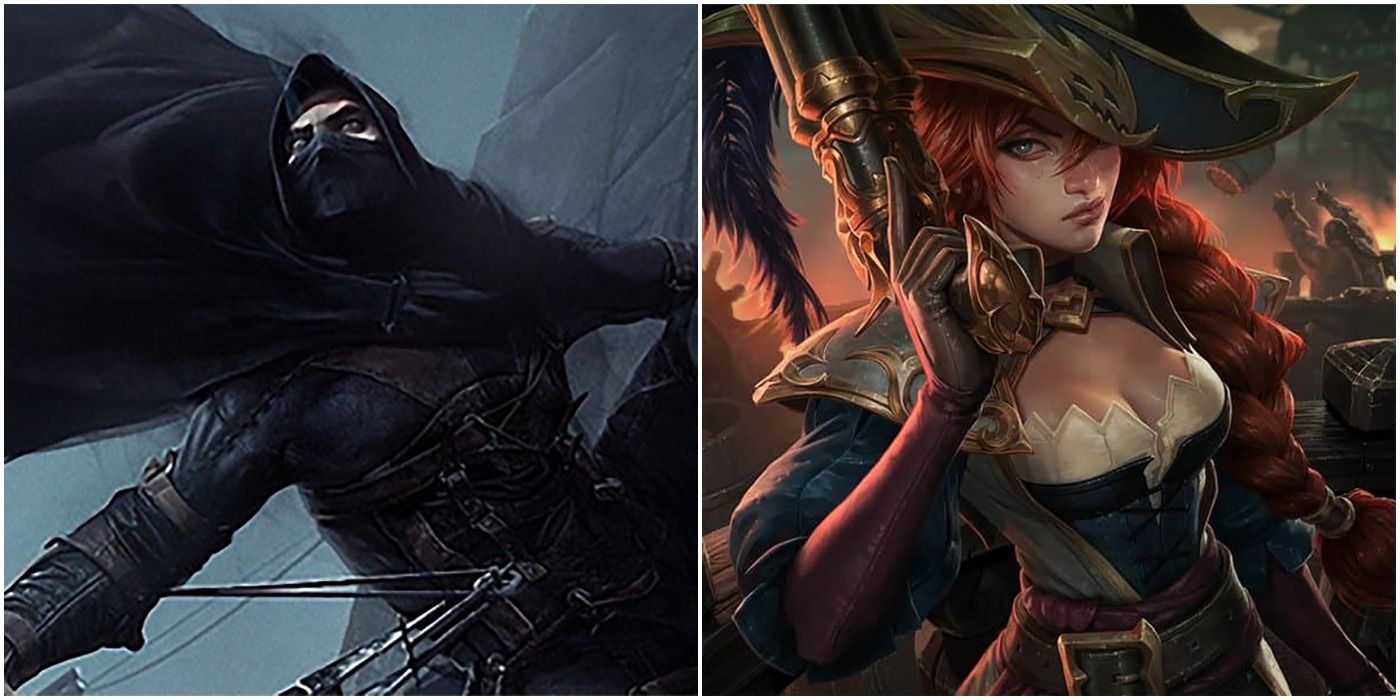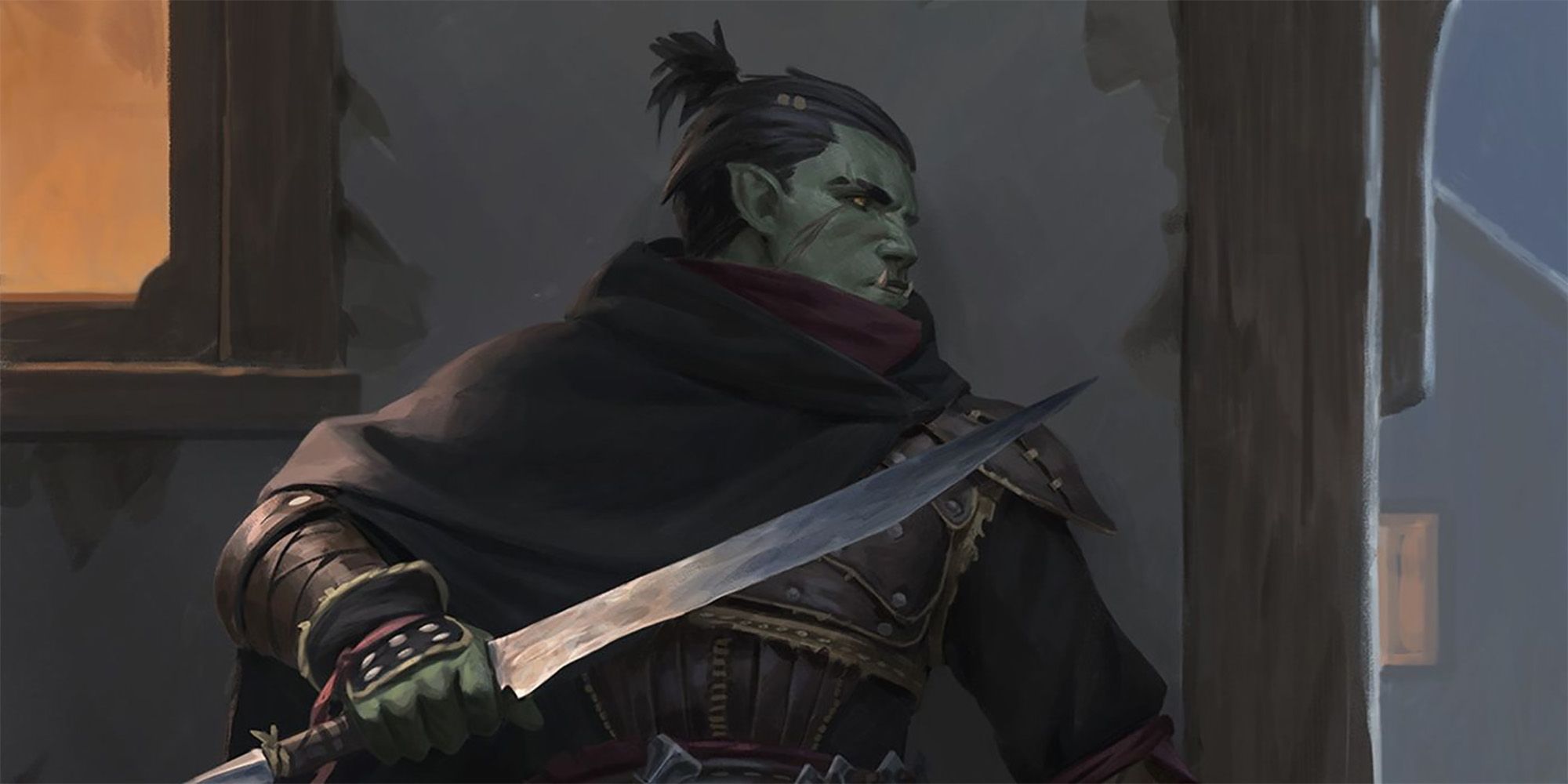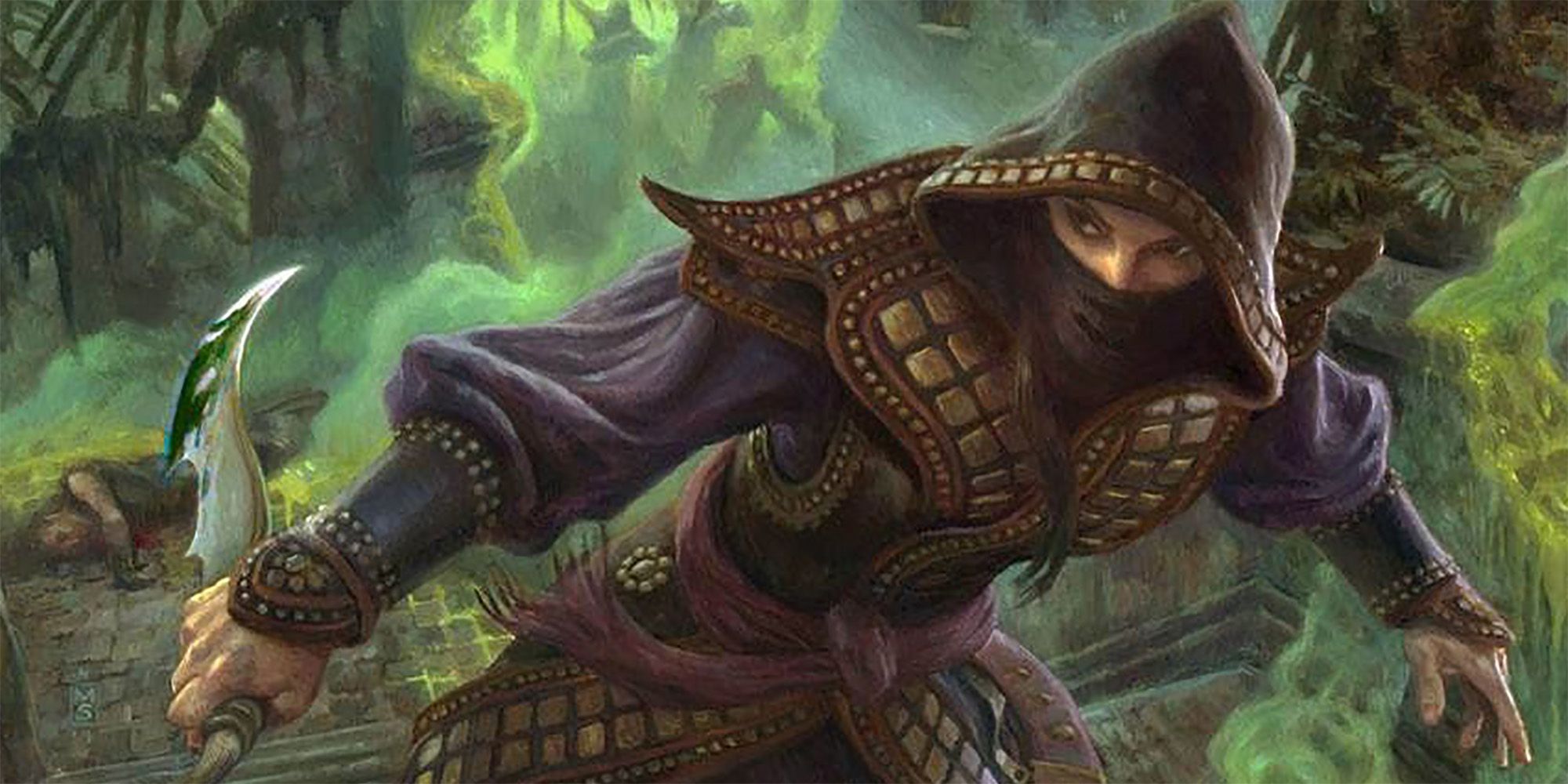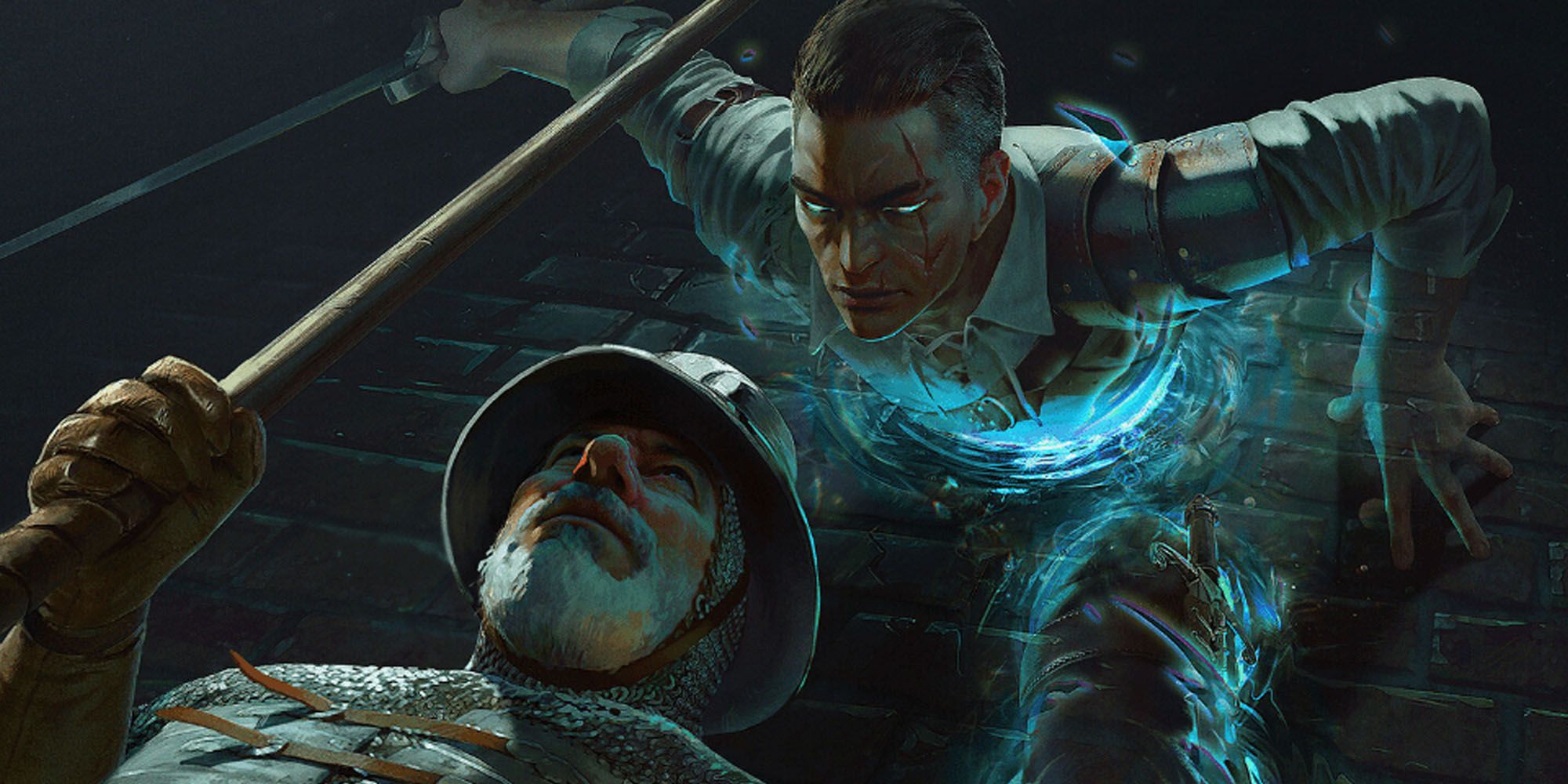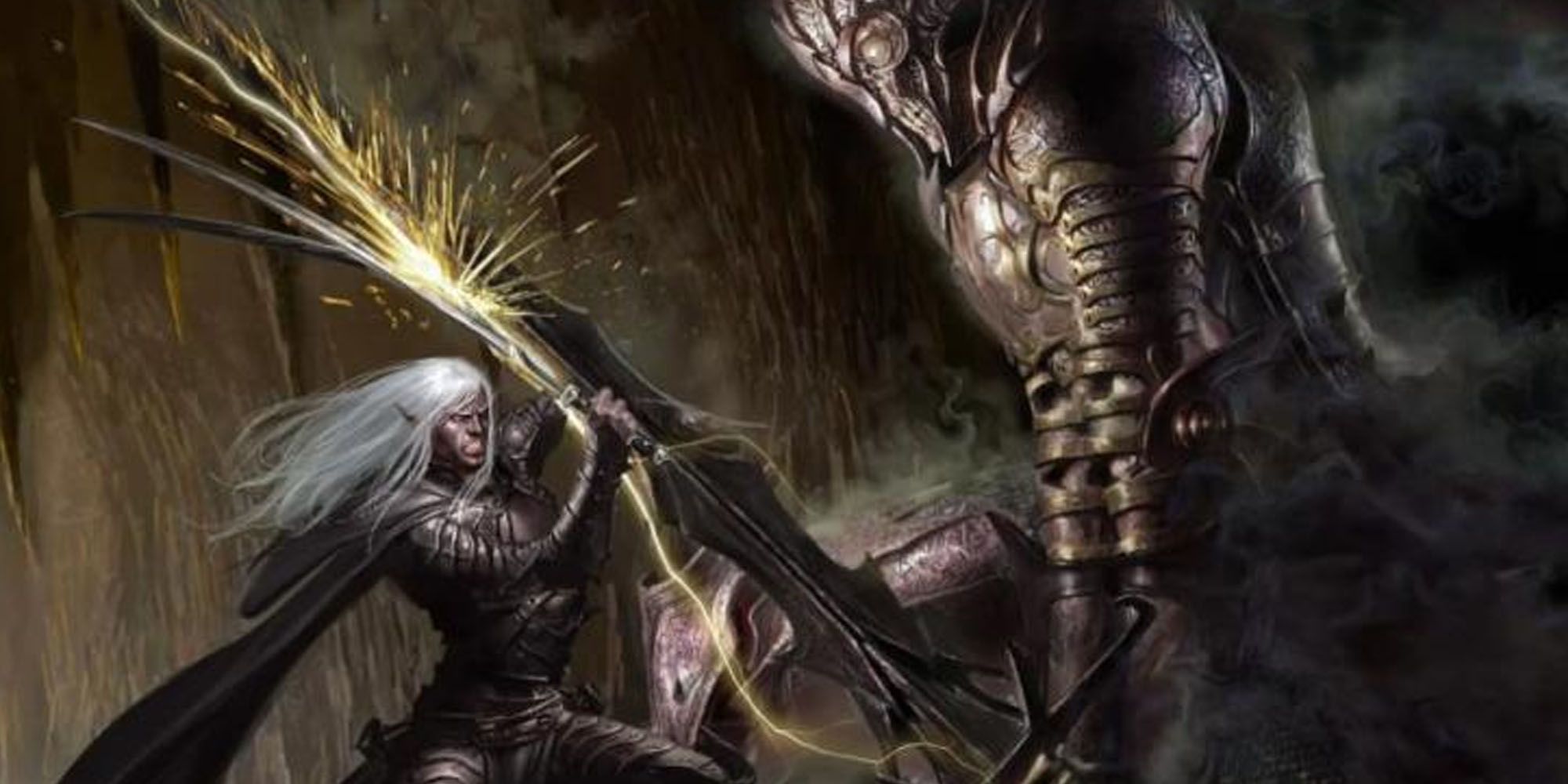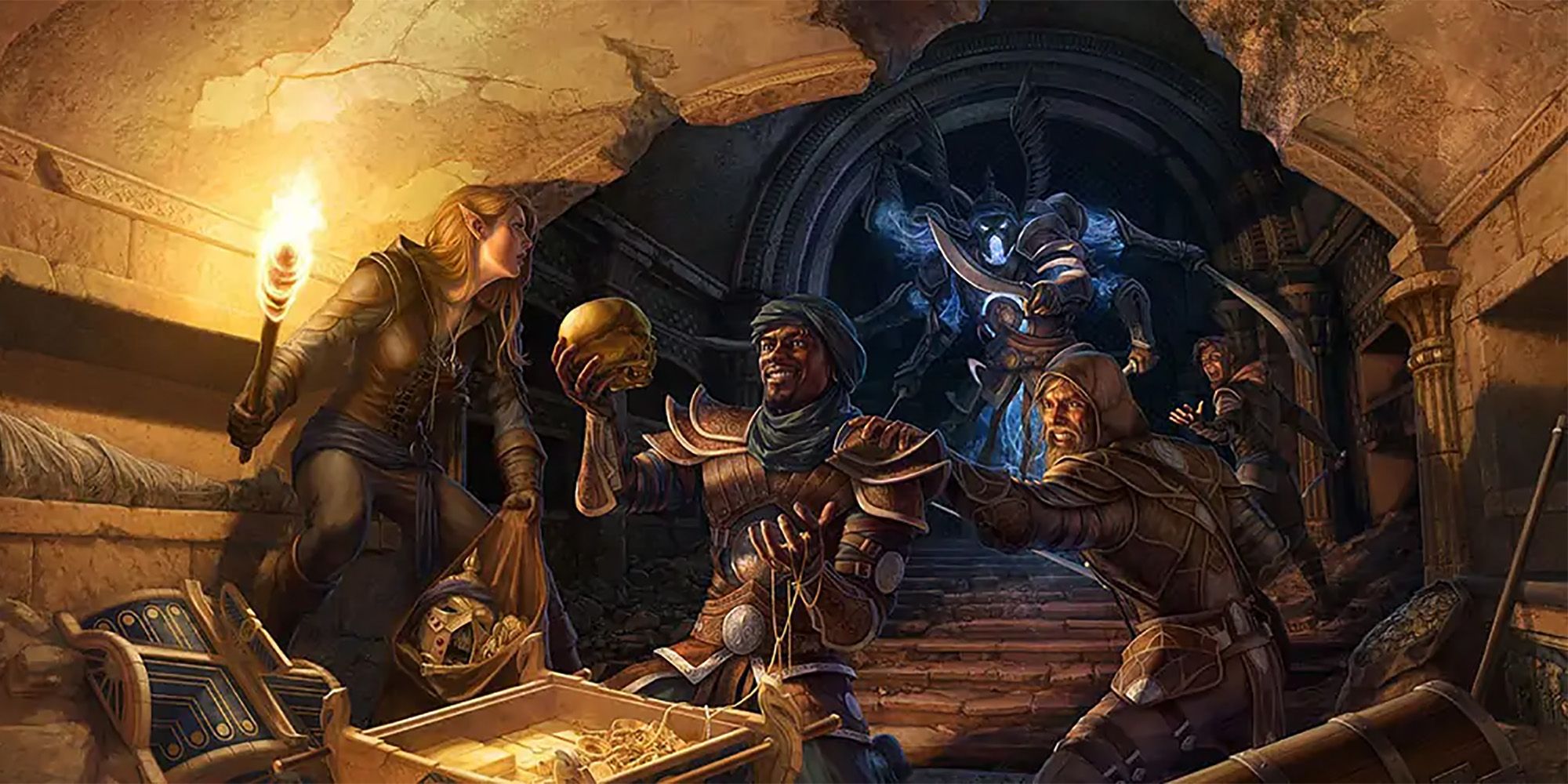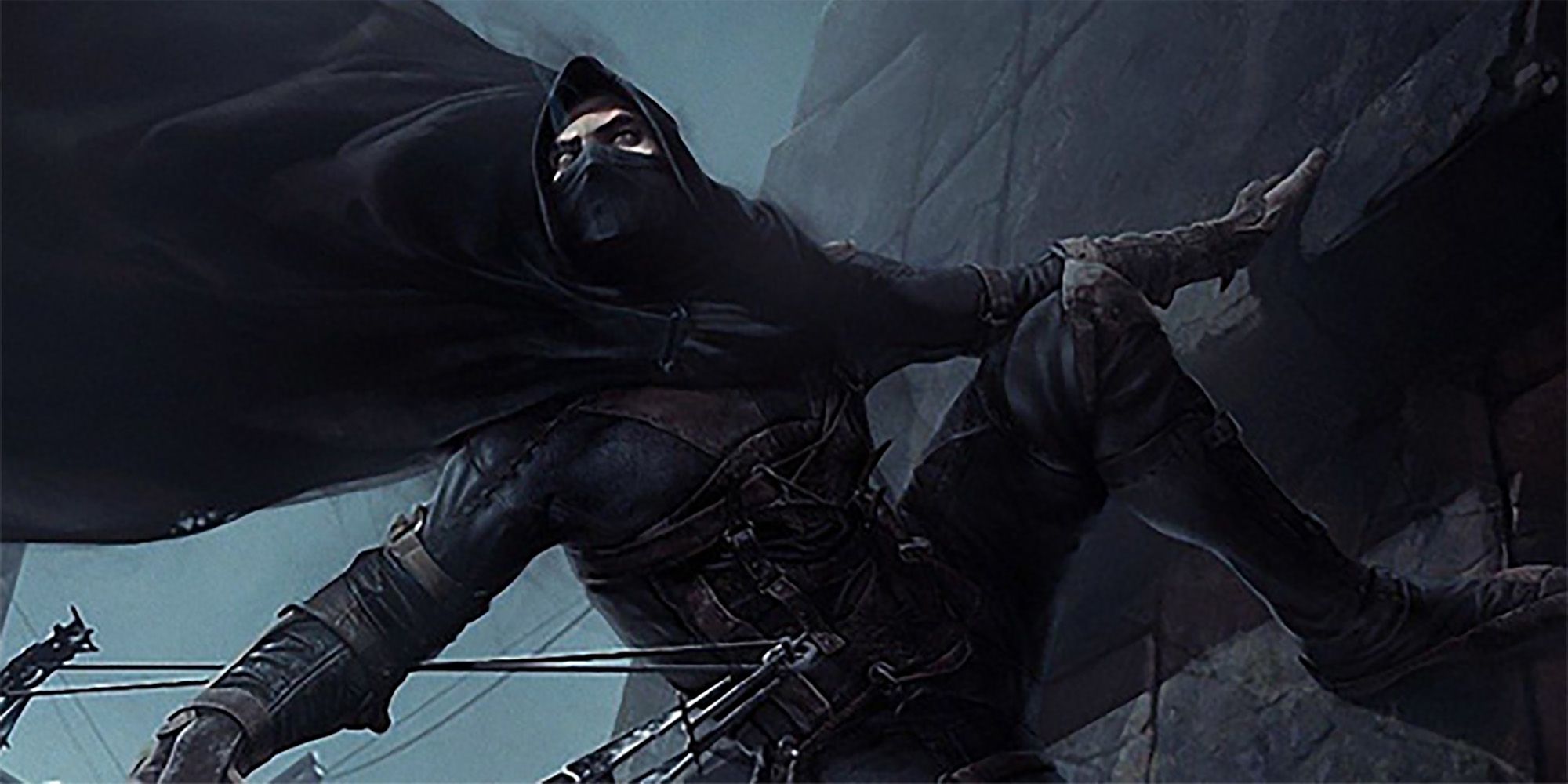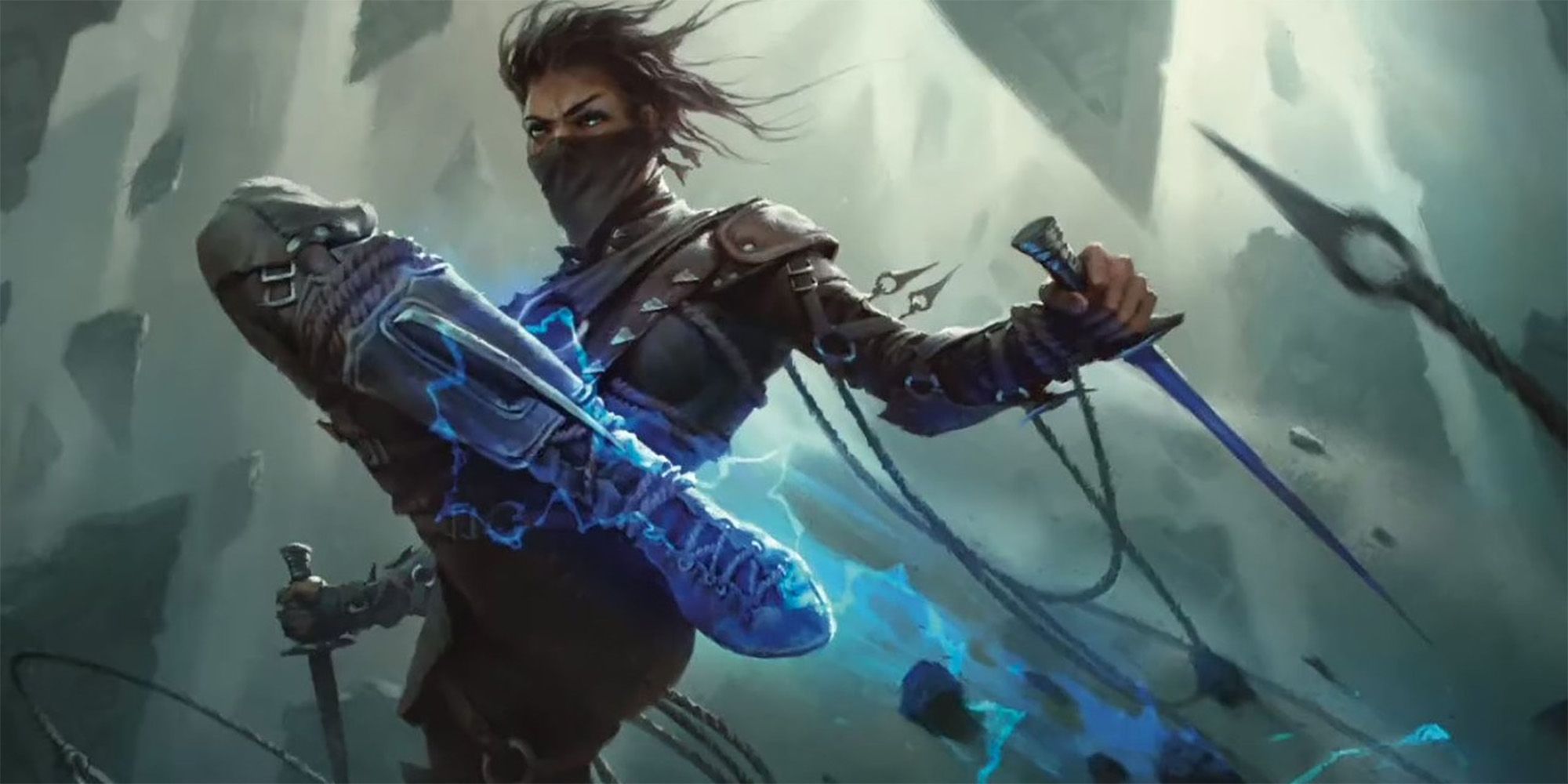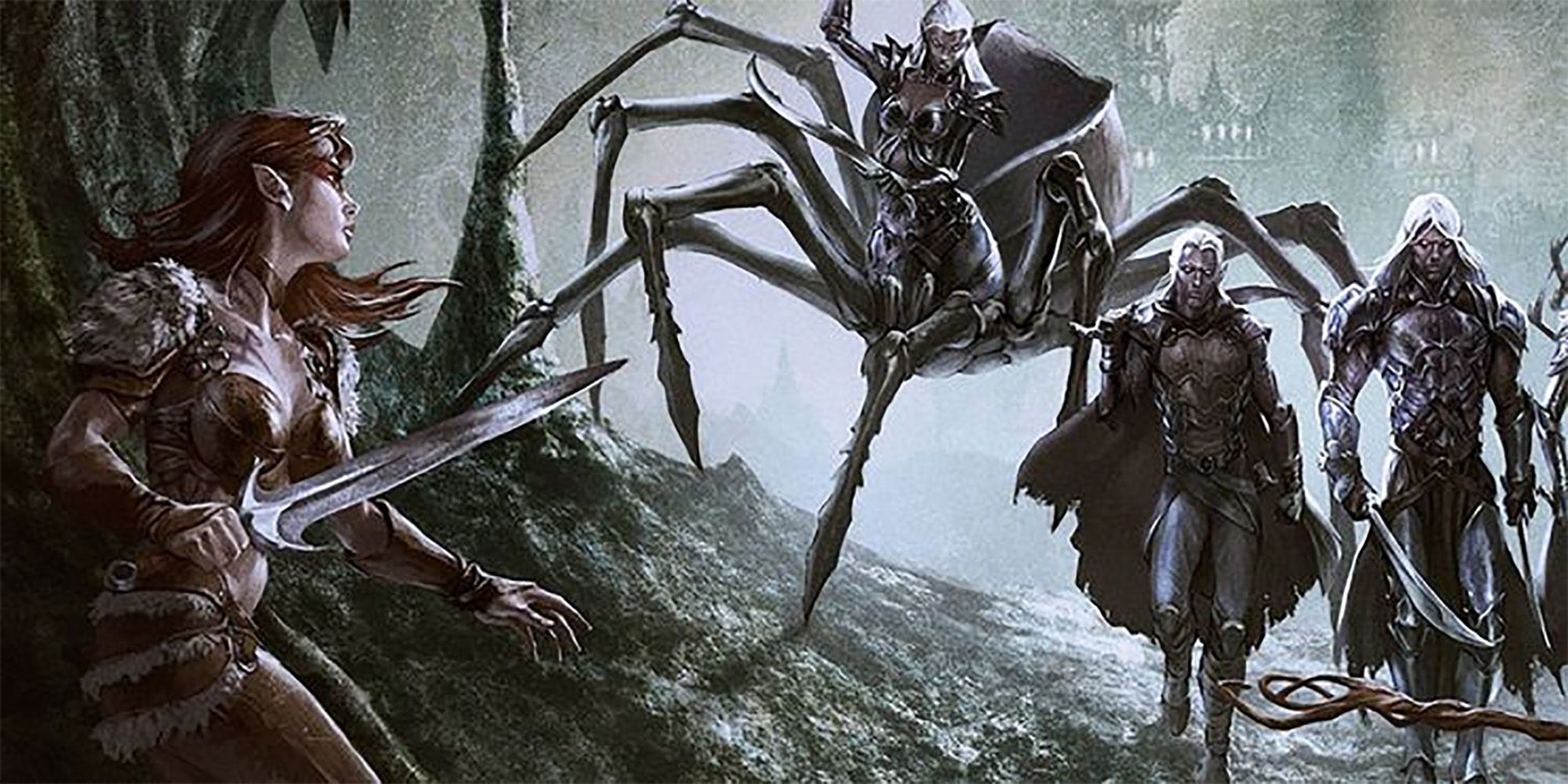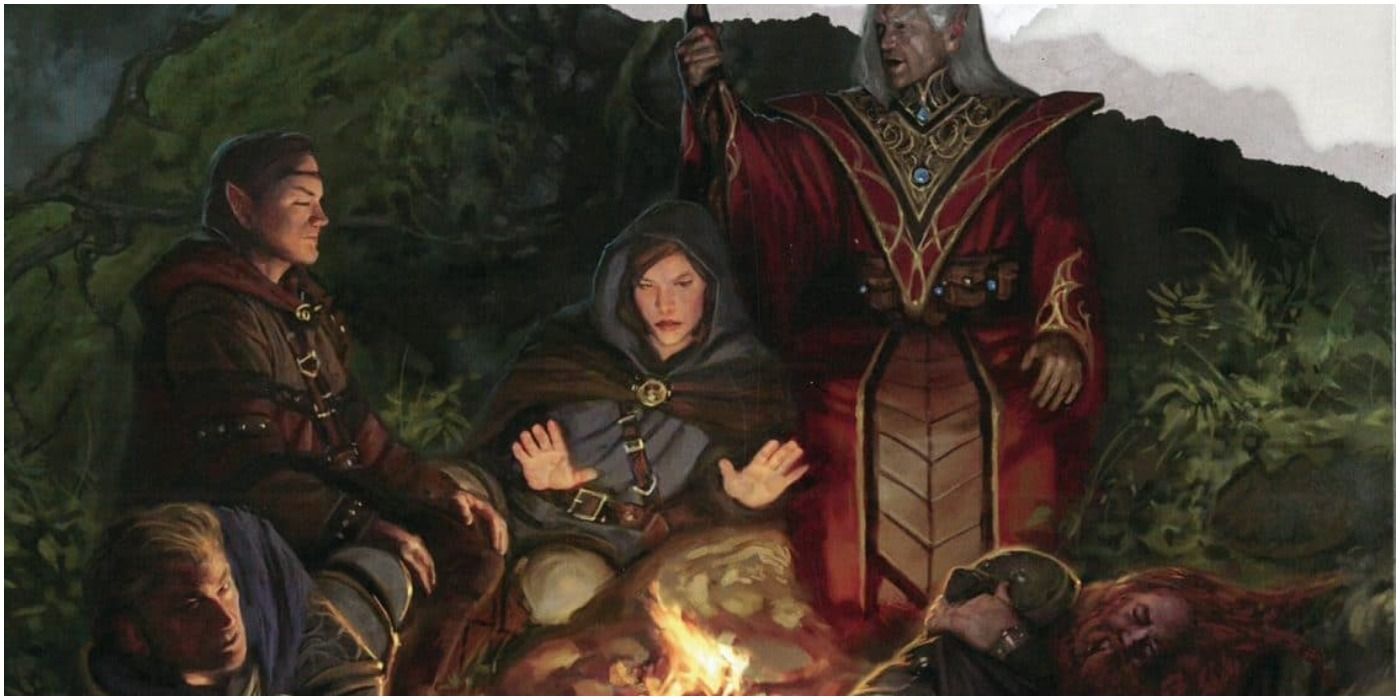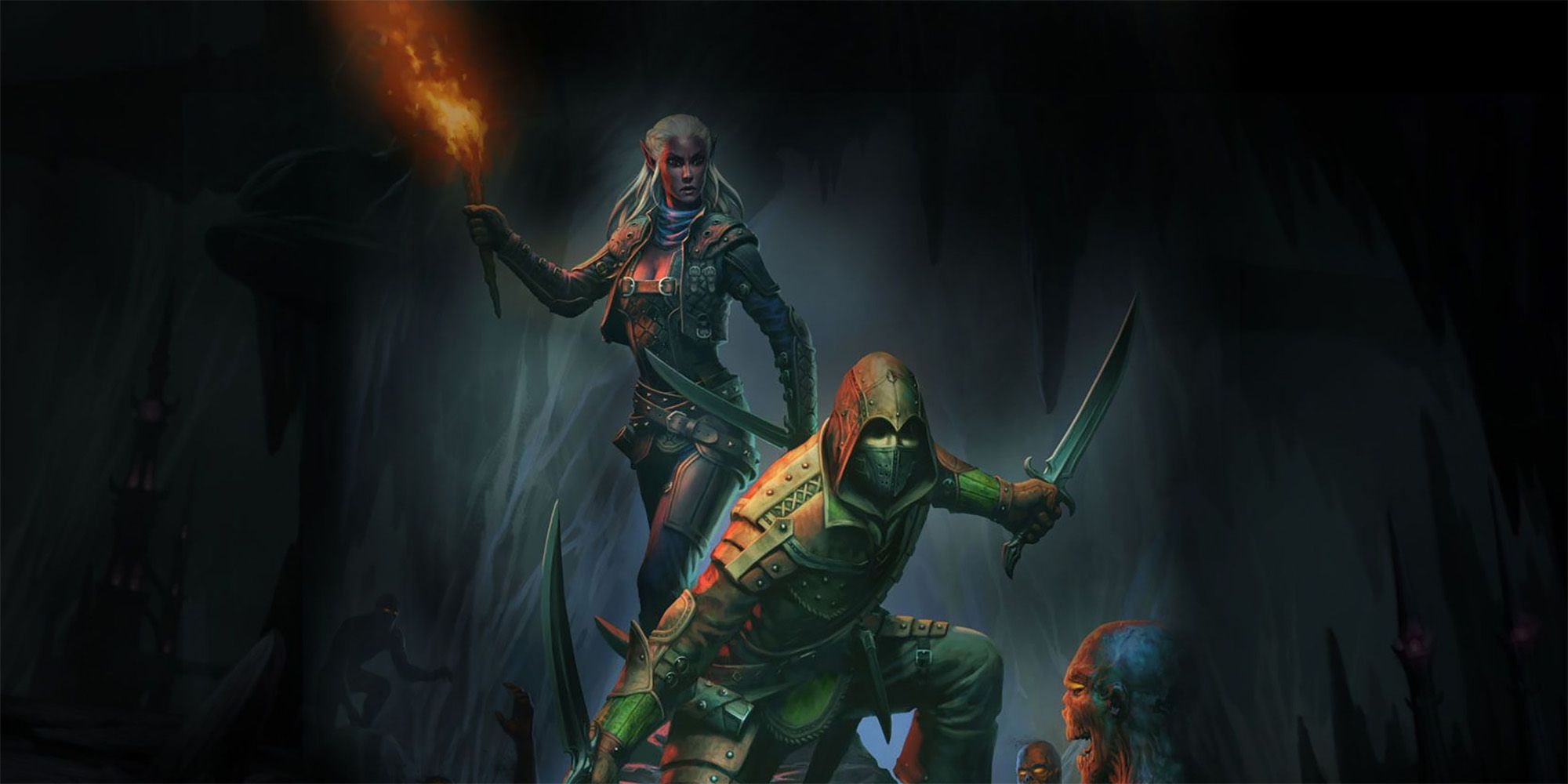Few classes in Dungeons and Dragons evoke the same feeling of danger and mystery as the Rogue. It thrives on risky play and versatility, making it a favorite among D&D veterans and new players alike.
The Rogue is an especially popular choice for beginners to the game, as it comes with powerful abilities, plenty of interesting build opportunities, and backstories that practically write themselves. There are a few downsides to this class, however, and not everyone will enjoy playing a Rogue their first time out.
10 The Best: Everyone Thinks Rogue Are Cool
From the thief who steals the royal jewels, to the deadly assassin who infiltrates the debutante ball, everyone can agree that Rogues are awesome. It's no surprise then that this class is a favorite and finds its way into most adventuring parties.
This also adds a lot of appeal for new players, because getting to be cool is one of the driving factors for many beginning roleplayers. Everyone wants to have epic moments, and Rogues are well suited for this purpose.
9 Not The Best: It's Easy To Take On A Solo Mindset
Dungeons and Dragons is a cooperative game, yet the Rogue's role is not always conducive to this. After all, a thief or an assassin are often individuals who would work alone under many different circumstances.
New players will need to avoid falling into the trap of getting into a solo mindset or risk antagonizing other players at the table. The occasional scouting mission is fine, but players who constantly go off on their own aren't going to make for the best team players.
8 The Best: You Get To Deal Insane Damage
If there is one skill everyone immediately thinks of when talking about Rogues in D&D, it's the Sneak Attack ability. It's as ubiquitous to the class as being stealthy or having a tragic backstory. It's the class's signature move, and it really packs a punch.
As you level up, those extra damage dice really start to add up as well. New players especially will get a lot of satisfaction from seeing their enemies go down after a well-placed sneak attack, and it makes Rogues extremely powerful in combat situations at all levels.
7 Not The Best: You Might Get Squished If You Don't Play Smart
As strong as a Rogue can be in combat, they can definitely end up playing like 'glass cannons.'Though at higher levels they get plenty of abilities to help mitigate damage, not all new players will know how to utilize their movement and abilities to stay alive.
Finding yourself in a dangerous situation is part of D&D, and many Dungeon Masters will give a bit of leniency to new players who find themselves in a tough spot. However, Rogue is certainly a class that requires more strategy than tougher classes such as Fighter or Barbarian.
6 The Best: You Get The Best Skills
There are two ways to build a character in D&D; specialize in a particular area, or make them extremely versatile. Rogues can do either, but they excel in the latter, to the point where they can only be surpassed in versatility by the Bard class.
This plays out particularly well in campaigns with a strong focus on dungeon crawling, where the Rogue's numerous skills come into full effect. Even better, with a little careful planning, a Rogue can get some extremely high bonuses to one or two important skills, making them some of the most useful characters around.
5 Not The Best: You Might Get Stereotyped
Not every Rogue has a tragic backstory, but a lot of them do. This is largely due to the influence of characters we see in the media, like Batman and Arya Stark. More so, something about a class with plenty of thief and assassin-style abilities just seems to lean into having a dark past.
Of course, in Dungeons and Dragons, it's important that all players have the freedom to play the characters they want, within the bounds of the agreed-upon game. Some new players might not realize all their options, however, and other players might have a tendency to see their Rogue ally as a thief and a scoundrel, even if they aren't.
4 The Best: Plenty of Subclass Variety
Rogues are not always simple thieves or assassins. They can be swashbuckling pirates, mastermind criminals, or magic-wielding tricksters. The Rogue subclasses offers plenty of variety.
This is particularly good for new players who are looking to be effective in the game but who are also looking for flexibility. With the right subclass, players can customize their characters to fit almost any backstory, while still retaining the elements that make them powerful both in combat and out of it.
3 Not The Best: Often The Center Of Attention
Due to their importance to their party, Rogues are often the focus of everyone's attention. They are expected to be scouts, lockpickers, deceivers, and plenty more depending on the situation.
This isn't always the best situation for new players, who need to learn the ropes of a complex game. While some players might thrive under this kind of pressure, others will find it too daunting to be so heavily relied upon when they are still new to D&D.
2 The Best: You Play An Integral Role In The Team
Despite being characters who often keep to the shadows, Rogues are extremely useful in all of three main pillars of D&D. Whether you are in combat, exploring the world, or negotiating with your enemies, the crafty Rogue can play an important role.
For players who are just starting out, having so much to do might be just what they need to get invested in the game. Being relied upon so heavily might be too much for some, but for players who thrive in the spotlight, the role of the Rogue will fit like a glove.
1 Not The Best: You Need To Play Tactically To Excel
Certain classes in Dungeons and Dragons can be played in a fairly straightforward manner, particularly the melee classes such as Fighters, Paladins, and Barbarians. Rogues can be played this way as well, but this style of gameplay doesn't get the most out of the class.
Playing tactically is where a Rogue can excel. Moving through combat, delivering key strikes when needed, maneuvering across the battlefield all take some level of strategy. Using your many skills to help the team as you navigate the world also requires some clever thinking, and many of these opportunities might not be apparent to new players. It's easy to be a good Rogue, but being a great one requires a bit of extra effort and experience.

